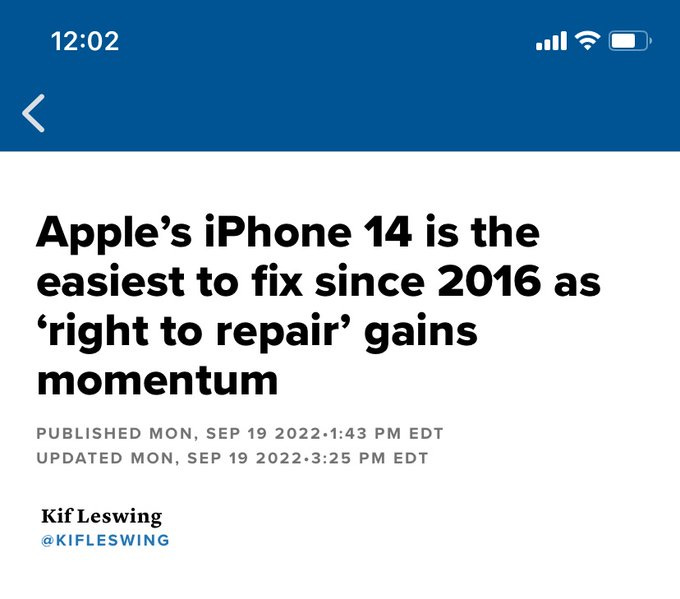Well, Anthropic and I were not a good fit, though as predicted it was an experience. I’ve started a new job on the Python language team at Netflix. It feels like a much better match in a number of ways.
The makers of Alto's Adventure and Alto's Odyssey, two of my all-time favorite video games, are back with a game called Laya's Horizon, which brings the familiar Alto vibe to a 3D open-world situation. In the game, you fly & glide around, navigating different terrain to achieve various goals and objectives. I've been playing it for the last few days and it's a really fun, chill game. Basically, if you loved either Alto game, you'll enjoy this.
Laya's Horizon is available on iOS and Android and is free to play if you have a Netflix account. Did you know Netflix had a gaming service? (thx, patrick)
Tags: iPhone games · video · video gamesI was reading Baldur’s article (which I took notes on) and he suggests an interesting overlap between AI enthusiasts and “idea people”:
That algogen fans are predominantly idea people—the lot who think that 99% of the value delivered by any given form of media comes from the idea—isn’t a new observation, but it’s apt. If you don’t think the form or structure of the medium delivers any value, then it has to be a uniform commodity that can, and should, be generated algorithmically to save people from the tedious work of pointless creation.
If all that matters is the idea, then AI is everything and execution doesn’t really matter. From this perspective, when it comes to generating text it’s the destination that matters not the journey.
Or so some might believe.
There’s an interesting parallel here, I think, to claims about how fast you can scaffold a website. X framework or Y host allows you to go from zero to a beautiful, functional (probably cloned from a template) website in “three easy steps”. The idea being, however implicit, that “in as little as three easy steps” you’re 90% of the way to something unique and special.
But if you’ve been doing this for a while, you know that last 10% takes 90% of the time — it is the everything that differentiates you. If anybody can spin up a website in “3 easy steps” then what’s the differentiation? It’s everything after the three easy steps that counts; everything after the “website in minutes” that separates you from the rest.
It’s kind of like conflating “minute rice” with regular rice. To some people it’s all the same — after all they both have the same name “rice” — but to conflate the two would be folly. The difference is everything.
Welcome to BIG, a newsletter on the politics of monopoly power. If you’re already signed up, great! If you’d like to sign up and receive issues over email, you can do so here.
In the big tech-financed DC-tip sheet Axios four days ago, Dan Primack asked and answered an important question. “Who's afraid of Joe Biden's antitrust enforcers?” he queried. “Fewer people than last month.” Primack was responding to the Department of Justice Antitrust Division losing an important merger challenge between UnitedHealth and Change Healthcare, as well as the FTC losing a similar case. And while advocates want more cases, his colleague Ashley Gold noted, "it’s not clear who benefits if losses start to stack up."
Then yesterday, news came out about another Division loss in a sugar merger. Both the UnitedHealth and sugar case were heard by Trump-appointed corporate judges, and I’ll get into that. More broadly, just what is going on? What do these losses mean?

For most Europeans, the first eight months of World War II were a snooze fest. Unlike the first world war, little but bureaucratic chatter seemed to happen for almost a year after Germany and the U.S.S.R. invaded Poland in September of 1939. This changed in May of 1940, when Germany attacked France and the low countries, winning much of continental Europe in just six weeks. But until then, those eight months were anti-climactic for the many peoples who were expecting, as they had experienced a little over twenty years earlier, mass slaughter.
This period came to be known as ‘the Phony War.’
Since the beginning of the Biden administration, we’ve had something of a Phony War around antitrust. Lots of chatter, bureaucratic shuffling, procedural motions, document demands, Congressional testimony and campaign ads. Calls to break up Google and Facebook and Amazon, do something about consolidation in health care and groceries, private equity and so forth. But limited shooting.
Over the past month, the antitrust Phony War has ended. What looked like little action was bureaucratic ramp-up. Lina Khan was hired to run the Federal Trade Commission and finally given a working majority five months ago, Jonathan Kanter was put in place at the Antitrust Division, and the Biden administration laid out a whole-of-government competition policy framework. Now it’s time for the shooting war, with the ebb and flow between the anti-monopoly movement and the bureaucratic and institutional obstacles in government and the judiciary.
The start of the conflict is easy to miss, since big dramatic actions, like breaking up Google or Amazon, haven’t happened. For instance, Scott Galloway and Kara Swisher, who are important opinion leaders, made the case on their influential podcast Pivot that Lina Khan has so far delivered nothing, either big or small, on big tech. And there is some merit to this pessimism. Both agencies have suffered stinging court losses. These include defeats in criminal wage fixing cases, and merger challenges against Illumina-Grail, UnitedHealth-Change, Altria-Juul, and U.S. Sugar-Imperial Sugar.
But in other areas, corporations are changing their behavior and markets are becoming more open. So to overlook the accomplishments is imprecise, just as it would be wrong not to concede some real setbacks for anti-monopolists. To decipher this set of affairs, I’ll lay out the good, the bad, and the ugly as the shooting starts.
The Good: Markets Are Becoming More Open
First, let’s start with the good, which is, from my perspective, the resurrection of dormant antitrust law. The agencies had 14 mergers blocked or abandoned in the last year, in important areas such as refrigerated shipping, hospitals, semiconductors, retail, and the defense sector. In some, like aerospace, these merger challenges reshaped an entire landscape. Still, blocked mergers, while they stop things from getting worse, only indirectly address the broader concentration crisis.
There’s a lot more than mergers. This summer, the Federal Trade Commission announced three different cases around firms trying to make it harder to repair their products, fruits of advocacy by the ‘right-to-repair’ movement. None of them targeted Apple, but Apple, like other big firms such as Microsoft, has begun to change the design of its products in response to this changing legal environment.
There are other shifts in the marketplace. Amazon, for instance, is considering rolling back its basics program due to fear of regulation and antitrust action, and I have heard from some third party sellers that Amazon over the last few years has tried to tamp down on overtly predatory behavior in its Marketplace. As the retail giant does so, it could help tens of thousands of third party sellers and merchants.
Another example is using the law to in labor cases. The Antitrust Division has been criminally prosecuting wage-fixers. It also forced structural change in the poultry industry to help farmers. In addition, the DOJ will likely prevail in its suit against a big book merger, which will benefit writers and free expression, and shift antitrust law in important directions. And the FTC has stopped predatory payments firm FleetCor, which has been ripping off businesspeople who use gas cards.
There’s more. As a direct result of the White House competition order fostering a new over-the-counter hearing aid industry, Best Buy just launched a special hearing aid section in 300 stores, and an online hearing test tool.
This action is likely to save money for consumers, and benefit people who need help with their hearing, while protecting independent audiologists. Senator Elizabeth Warren and Chuck Grassley kicked this move off in 2017 by passing a law signed by Trump mandating this new hearing aid category, then the Biden administration forced the FDA to act. (There are some problems with the regulations that I will go into at some point, but hearing aid cartel firm stocks are hurting for a reason.)
Another example is the fall of the Varsity Brands cheer empire, whose power is being dismantled as an antitrust suit fostered an outpouring of anger at sexual abuse in the sport. More broadly, in everything from app development to anger at software firms like Autodesk, people are speaking out.
The Bad: Losses by Antitrust Enforcers
The bad is pretty simple. Losses. In a highly concentrated economy, losing merger challenges simply shouldn’t happen. UnitedHealth Group, for instance, has revenue of more than $200 billion a year. It dominates doctor’s practices, health insurance, and pharmacy benefits management. UHG is the textbook symbol of a consolidated and bloated health care system, and was seeking to buy the key payments network in health care that controls nearly all financial data in the industry, run by Change Health. The UHG-Change transaction was a comically unlawful merger, and yet the Antitrust Division just lost in its court challenge.
Similarly, the Division failed in a case in the sugar industry combining two giants in the southeast. Sugar is a consolidated industry, so is agriculture more broadly. You would think, given the caselaw and the concentration crisis, this challenge would be a lay-up. Alas, no. Similarly, the FTC lost a challenge in its administrative court between Altria and Juul in the comically concentrated tobacco sector. The Commission also lost in that same court a challenge to Illumina-Grail, which is a vertical merger case involving cancer screening. And then there are of course the three losses by the Division in criminal trials for wage-fixing or price-fixing.
These losses matter. When lawyers lose, it’s discouraging, and makes them cautious and frustrated. The Antitrust Division was in shock after losing the AT&T-Time Warner merger challenge in 2019, and didn’t recover until it got new leadership. Also, litigation shapes the law, so losing badly can make it easier for monopolists the next time they face a suit. Losses on vertical merger challenges, like Illumina-Grail or UnitedHealth-Change, can make it harder to bring other vertical challenges. Moreover, judges and deal-makers follow trends, and so losses mean that there’s more willingness to do unlawful deals. Amazon, for instance, is probably not as concerned about being challenged in its Roomba or One Medical deals as it was a few weeks ago. Wall Street bankers have no reason to slow down.
So Primack was in a sense correct when he wrote, “Who is afraid of Biden’s antitrust enforcers? Fewer people than last month.”
The Ugly: A Corrupted Judiciary
It’s tempting, in moments like this, for the legal community to argue that the antitrust enforcers are being too aggressive. Back in April, Ann O’Brien, a former prosecutor turned corporate lawyer at BakerHostetler, jeered when the Division lost some price-fixing cases. “This has to be the most devastating week of losses for the criminal program in the history of the Antitrust Division,” she said publicly. Similar statements are coming today around merger trial losses.
But it’s also important to step back and look at why the enforcers lost these cases, not just that the losses happened. I’m going to focus on one of them that I’ve examined in a bit of detail, which is the UnitedHealth-Change merger.
To explain the loss, it’s important to start with the reputation of the firm trying to do the acquisition. It’s pretty hard to find a more disliked company than UnitedHealth. Here are just a few of the problems the giant firm has run into in the last twenty years.
The UGH CEO resigned in a stock manipulation scandal and had to repay $600 million.
UGH was fined $173 million by the California insurance regulator after it acquired PacifiCare and had 900,000 unfair claim settlement violations.
A judge in 2019 ripped UHG medical directors for being “deceptive” under oath and discriminating against those seeking mental health and substance abuse treatment.
UHG subsidiary Ingenix, was caught stealing from patients.
A UHG subsidiary was at the center of the controversy over the botched rollout of Healthcare.gov, the federal ACA enrollment portal, for which the company received more than $55 million in contracts.
As you would expect, UHG is roundly loathed by doctors, patients, and hospitals. Here’s a video by Dr. Glaucomflecken, a popular comedian who satirizes health care. He got more than a million views making fun of UHG for operating as a lawless giant that raises medical prices and breaks the law. In short, UHG has a bad reputation.
And yet, the judge who ruled against the Antitrust Division, Carl Nichols, argued as a key reason to dismiss the DOJ’s suit and I’m not joking, that UnitedHealth has “a culture of trust and integrity.” The case involves whether UGH, in buying a company with lots of data on what its competitors do, would ever take a peek at that data to benefit itself. Having access to that data is an obvious conflict of interest, but Nichols basically said, ‘Nah, UHG execs are good guys.’
What was his evidence? Here again, I’m not kidding, Nichols said the evidence that UGH would not take advantage of rivals is that the company’s CEO, Andrew Witty, said so. Doing so, Witty argued, “would be against the tone, the culture, the rules, everything we stand for in the organization.” The chief operating officer and the chief privacy officer also stood as stalwart honorable men. “I honestly think you would see a lot of people quitting,” said Peter Dumont, UHG’s Chief Privacy Officer, in response to a question about why the firm wouldn’t engage in surveillance on its rivals despite now having the means to do so. In other words, testimony from known liars who have a strong incentive to lie is what Nichols considers ironclad evidence.
BIG is a reader-supported newsletter focused on the politics of monopoly and finance. This is journalism and advocacy that challenges power, so please consider a paid subscription. You can always get lies for free. The truth costs a few bucks, but in the long run it’s much cheaper.
I’m not going to go through the full litany of embarrassing claims by Nichols, but his logic is worth a bit of examination. He argued that if UHG misused data acquired in the merger with Change to spy on rivals, it would suffer damage to its reputation. Customers would flee. This is, of course, nonsense. Already, UHG does not have a good reputation, and people do business with it because they must. Change runs an entrenched payments system, and its own documents show that over two-thirds of health care transactions go through its network. As the Antitrust Division showed, customers wouldn’t flee, because they can’t. That’s the point. That’s why UHG wants to buy Change. (Rivals also would never know if UHG were spying on them.)

There’s so much bad faith in this decision it’s hard to know where to start. Nichols filed his decision eleven days after the trial ended. That is either shockingly fast, or more likely, Nichols was already writing his decision during the trial. He made a mockery of the law itself; in the very first paragraph, he writes that “the government has not met its burden of proving that the transaction is likely to substantially lessen competition.” The actual statute says that mergers are unlawful if the effect “may be substantially to lessen competition.” The difference between “likely” and “may” is real. He simply misquoted the Clayton Act.
But more importantly, Judge Nichols is deeply conflicted. As of his last financial disclosure, Nicholas owned $50,000 in UHG bonds. He may have sold his holdings since then, but we don’t know - and as the Wall Street Journal uncovered, over 150 judges have ruled in cases where they held direct financial interests. What we do know is that Nichols doesn’t care about conflicts; he ruled for Apple and Microsoft in a case, during which he held their bonds, claiming that wasn’t a conflict of interest. Nichols comes from the corporate world, appointed by Trump in 2019 after ten years as a partner of Wilmer Cutler Pickering Hale and Dorr. He’s likely in social circles with the chief counsel of UHG, Matthew Wilhelm Friedrich, who is married to his colleague on the D.C. district court. This kind of incestuous elite network of former Bush DOJ people, turned corporate lawyers and judges, is part of what is ruining antitrust policy.
The same kind of nonsense happened in the Imperial Sugar loss. Another Trump appointee and ex-corporate lawyer, Judge Maryellen Noreika, ruled in this one. While that decision is sealed until next week, she had this to say at a previous hearing with respect to emails between competitors discussing prices: "The problem I'm having here is, I was a litigator for 20 years and this just doesn't seem like that much of a difference from what everyone in every industry does," the judge said. It's "not price-fixing," she said, but instead conveying that "We don't want to send out that we're desperate and chasing customers." I mean, that’s just jaw-dropping.
In the sugar trial, there’s a bit more than just another corporate judge. The top sugar economist at the Department of Agriculture, Barbara Fesco, actually testified against the Antitrust Division, saying “knowing these people as long as I have, I had high faith the [transaction] was good.” Fesco is the deep state in action, a bureaucrat who works for the industry she is supposed to regulate.
Smashing Through a Brick Wall
Of course, it’s too simplistic to allege pure bad faith. Warped legal precedent has enabled judges like Nichols and Noreika (and the FTC administrative law judge) to engage in egregioius decision-making on antitrust cases. In 1966, Justice Potter Stewart wrote a dissent with the famous line, “The sole consistency that I can find is that in litigation under 7, the Government always wins.” Today, one might be tempted to argue the reverse, that the only consistency that anyone can find is that in litigation, monopolists always win.
Still, the way to get over this brick wall is straight through it. With hundreds of Federalist Society judges friendly to corporate power put on the bench, and many more left-leaning judges who are also friendly to corporate aims, enforcers will have to get better at litigating, asserting good case law, and winning in front of juries. And they will. The Antitrust Division is filing a record number of cases, so there will be a lot of opportunities to practice. Resurrecting dormant law, as the Division is doing with the part of the Clayton Act on interlocking directorates, and the FTC is doing with anti-bribery statutes, will also help. Moreover, not all judges are corrupt or bad, most of them are just operating on autopilot, so enforcers are going to win some cases.
There will be other institutional changes. The broad thinking around the law is shifting. Democrats are changing their position on antitrust, and I’ve spoken with very right-wing judges at high levels rethinking antitrust and corporate power. With the Biden administration focused on competition policy across the government, perhaps political leaders will begin rooting out corrupt bureaucrats like Fesco.
Despite the losses, we are truly in a new era. For 40 years, corporate lawyers would throw everything they could at the wall, and some of it stuck. Over time, this eroded antitrust law. Meanwhile, enforcers only brought cases they thought they could win, and did so in such cautious ways that they constrained the law even when they won. One reporter wrote a book on this phenomenon, appropriately titled The Chickenshit Club, mocking prosecutors with perfect records. One consequence is the burden of proof on antitrust cases went up. Initial complaints in the 1970s could be eight pages long, today they are hundreds of pages long. Now the courts are going to see a range of creative challenges from enforcers. Enforcers will lose some, but they will win some. And that will shift the law.
More importantly, monopoly is now a central political question. The debates over antitrust and corporate power are happening on the campaign trail, in Congress, and in state legislatures, which is where they should occur. The Senate already passed legislation to strengthen antitrust law, and the House will likely follow. Over the next five years, there will be a lot more action.
The truth is, we need court losses to know where the problems are. Men like Nichols will always exist and stick their grubby little hands into the people’s affairs. But what empowered them was public disinterest and apathy. Now, however, if enough judges like Nichols block the use of antitrust law to deal with unpopular companies like UGH, or high-profile cases against Google and Facebook, legislators will react.
There’s a lot of anger and despair these days, a belief that nothing can ever get better, that America is irredeemably broken, that politicians don’t represent us. But that’s just a story, a fable, and it’s not true. It never has been true. But that narrative of powerlessness is perhaps the most powerful weapon in the monopolists’ arsenal, because it causes us to give up on self-government itself. That is foolish. Any legal framework created by people can be reshaped by people. The reason I know this is because we are reshaping one right now.
Thanks for reading!
And please send me tips on weird monopolies, stories I’ve missed, or comments by clicking on the title of this newsletter. And if you liked this issue of BIG, you can sign up here for more issues, a newsletter on how to restore fair commerce, innovation and democracy. And consider becoming a paying subscriber to support this work, or if you are a paying subscriber, giving a gift subscription to a friend, colleague, or family member.
cheers,
Matt Stoller

What’s this? Basically:
- A Raspberry Pi CM4
- WiFi, 8GB RAM
- Up to 16TB of SSD Storage
- An App Store, backups, remote access, and much more
Batch 1 is shipping now, but they’re taking pre-orders for batch 2, which ships in October. Starts at $159 and goes up from there.


